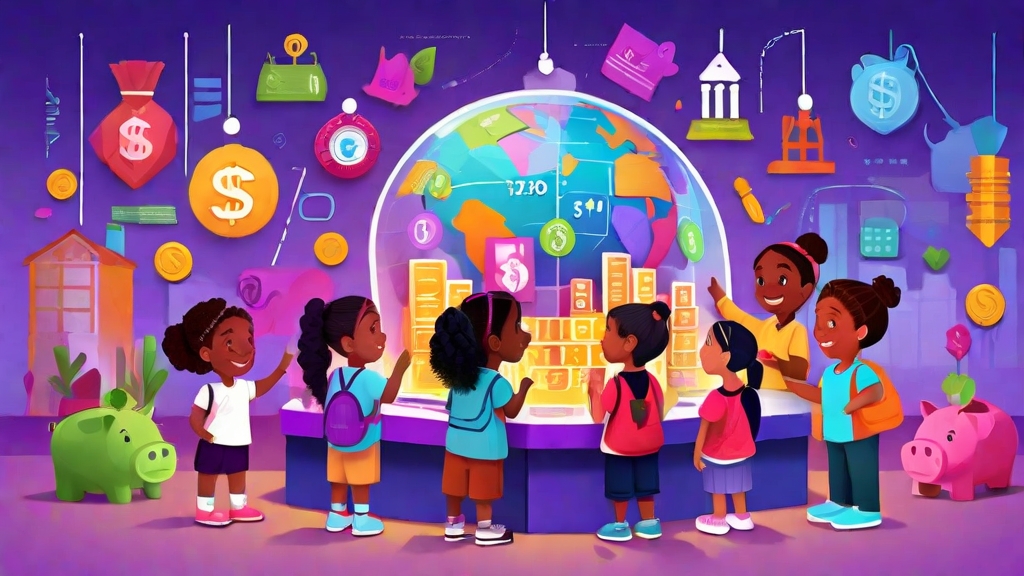In a world where financial literacy is the key to unlocking a secure and prosperous future, it is imperative that we equip the next generation with the necessary knowledge and skills.
Generation Wealth aims to bridge the gap by teaching young individuals about the intricacies of finance and empowering them to make informed decisions.
Through innovative strategies and a commitment to fostering financial independence, this article explores how we can empower the next generation to navigate the complexities of the modern financial landscape.

Key Takeaways
- Financial literacy equips individuals with knowledge and skills for informed financial decisions, promoting economic independence and exercising freedom.
- Strategies for teaching financial literacy include incorporating hands-on activities, introducing real-life examples, encouraging goal-setting and tracking progress, and fostering critical thinking and decision-making skills.
- Implementing financial literacy programs in schools and covering topics such as budgeting, saving, investing, and debt management can empower the next generation with financial knowledge.
- Financial literacy benefits include achieving financial freedom, avoiding scams and predatory lending practices, making informed choices about careers and education, developing responsibility and accountability, and understanding the consequences of financial decisions.
The Importance of Financial Literacy
The importance of financial literacy cannot be overstated, as it equips individuals with the necessary knowledge and skills to make informed financial decisions.
In a society that values freedom, financial literacy is essential for individuals to exercise their economic independence. It empowers people to understand concepts such as budgeting, saving, investing, and debt management. By mastering these skills, individuals can take control of their financial futures and avoid falling prey to scams or predatory lending practices.
Financial literacy also enables individuals to make informed choices about their career paths, education, and entrepreneurship opportunities. Moreover, it fosters a sense of responsibility and accountability, as individuals become aware of the consequences that their financial decisions can have on their lives and the lives of their loved ones.
Ultimately, financial literacy is a fundamental tool for achieving financial freedom and securing a better future.
Strategies for Teaching Financial Literacy
To effectively teach financial literacy to the next generation, educators and parents can employ various strategies that foster practical application and critical thinking skills. By utilizing these strategies, young individuals can develop a strong foundation in financial literacy that will benefit them throughout their lives. One such strategy is incorporating hands-on activities and simulations that allow students to practice making financial decisions in a safe environment. This helps to develop their decision-making skills and promotes a deeper understanding of financial concepts. Another effective strategy is to introduce real-life examples and case studies that highlight the consequences of poor financial choices. This can be done through interactive discussions and group projects, encouraging students to analyze and evaluate different financial scenarios. Additionally, encouraging students to set financial goals and track their progress can help instill a sense of responsibility and discipline. By implementing these strategies, educators and parents can empower the next generation with the knowledge and skills necessary to navigate the complex world of personal finance.
| Strategy | Description | Benefits |
|---|---|---|
| Hands-on activities and simulations | Allows students to practice financial decision-making in a safe environment | Develops decision-making skills and deeper understanding of financial concepts |
| Real-life examples and case studies | Introduces consequences of poor financial choices through interactive discussions and group projects | Promotes critical thinking and analysis of financial scenarios |
| Setting financial goals and tracking progress | Encourages responsibility and discipline | Fosters long-term financial planning and accountability |
Table: Strategies for Teaching Financial Literacy
Empowering the Next Generation With Financial Knowledge
Empowering young individuals with financial knowledge is crucial for their future financial success. In order to ensure the next generation is equipped with the necessary skills to navigate the complex world of finance, it is important to provide them with the tools and resources needed to make informed decisions.
Here are two key ways to empower the next generation with financial knowledge:
- Education: Implementing financial literacy programs in schools can help students develop a solid foundation in personal finance. These programs should cover topics such as budgeting, saving, investing, and managing debt.
- Practical Experience: Encouraging young individuals to take an active role in managing their own finances can help them gain practical experience and develop healthy financial habits. This can be done through activities such as opening a savings account, creating a budget, and investing in a small business.
Conclusion
In conclusion, equipping the next generation with financial literacy is crucial for their future success. By teaching them the importance of financial knowledge and providing them with strategies to manage money effectively, we empower them to make informed decisions and avoid the pitfalls of debt and financial insecurity.
As the saying goes, ‘A penny saved is a penny earned,’ let us strive to instill in our youth the value of saving and investing wisely, ensuring a prosperous future for generations to come.






